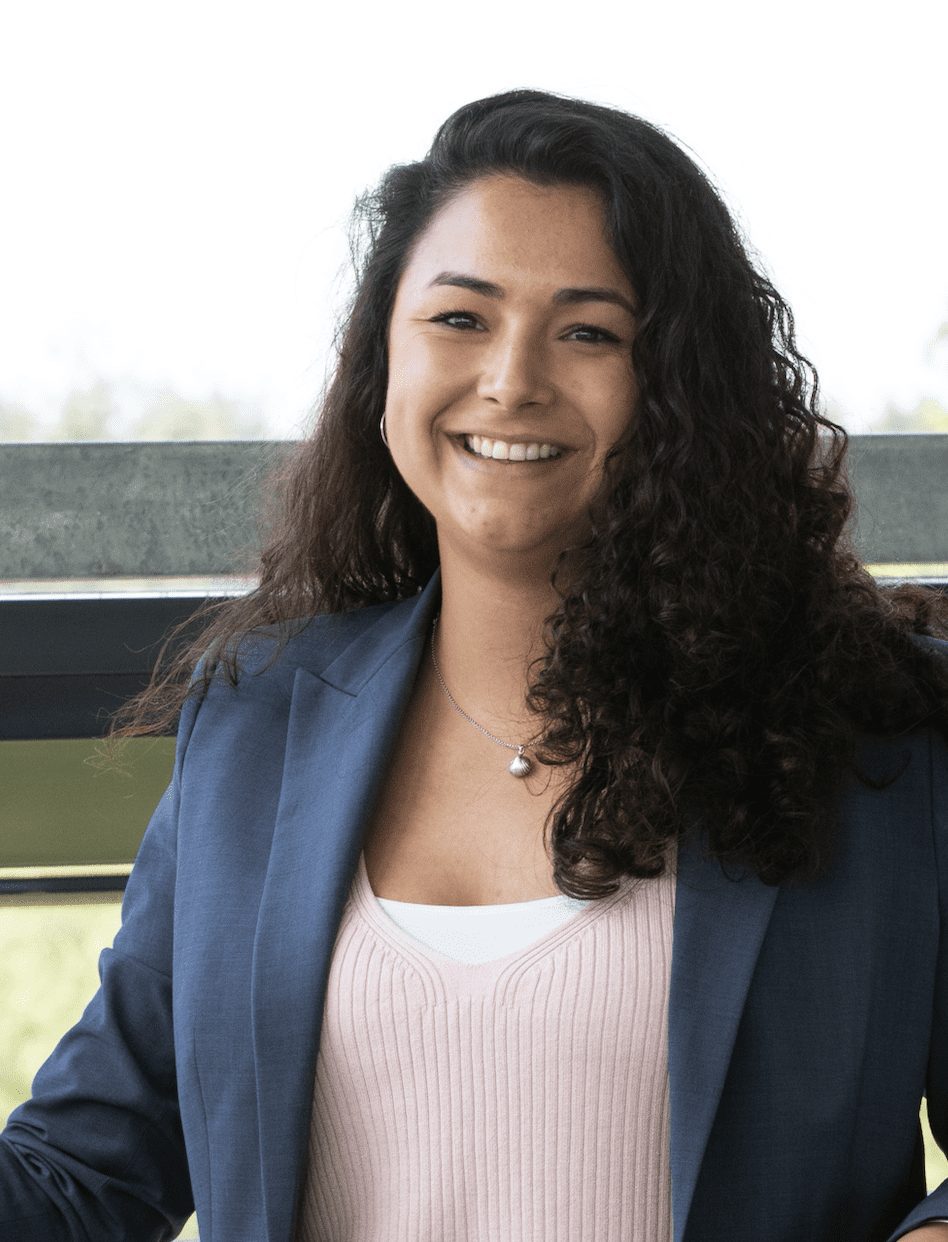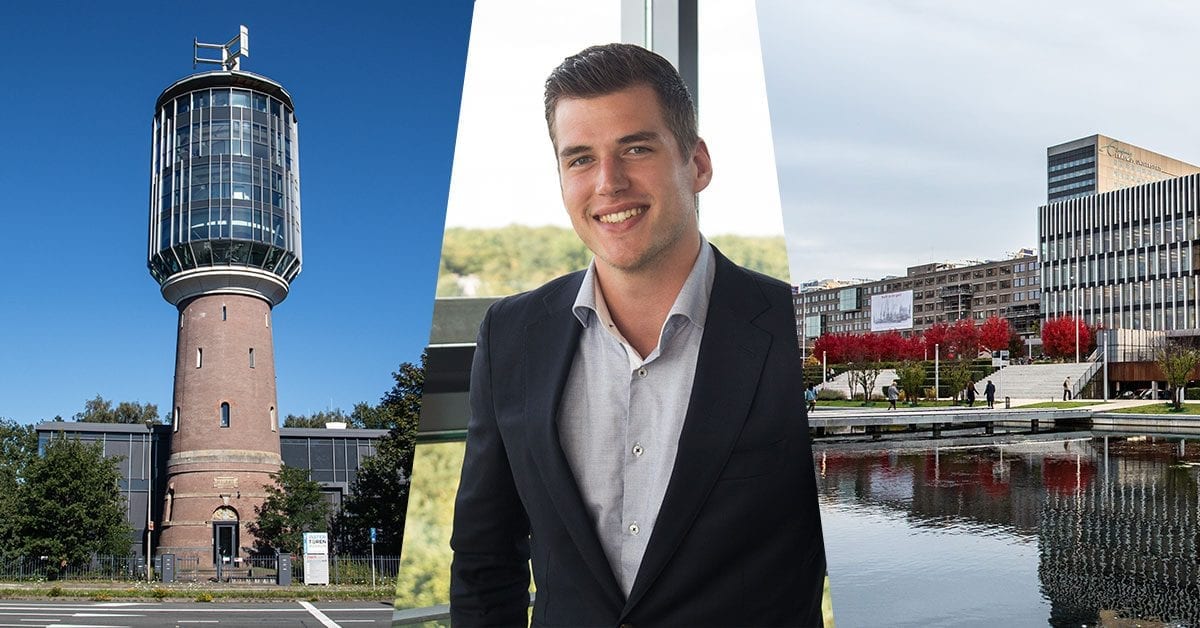Camille Zaaijer has been working at The Next Organization as a consultant since April 2019. Since then, she has worked on several projects in various sectors. In this interview, we asked Camille how she experiences working at The Next Organization after two years.

How did you end up at The Next Organization?
Through various collaborations with corporate organisations, I always thought during and immediately after my studies that I would be working for such an organisation. However, when I went to apply for a job after graduating, I found that the way of working, learning and developing in a corporate environment did not entirely suit my needs. I was then advised to also look at and apply to medium-sized companies. That's how I finally got to know The Next Organization through a recruitment website, and started working there with great enthusiasm.
What do you like most about working at The Next Organization? What makes it unique?
What I really like about working at The Next Organization is the freedom I get to develop myself in the areas I find interesting and in the way that suits me. This freedom is also felt in the projects you do as a consultant. There is always room for initiative and from the moment you enter the organisation you get a lot of responsibility in the projects you do. This makes the work challenging and fun!
In addition to the projects, we each have our own role and responsibility within the organisation to contribute to the daily operations and optimisation of the business. You are encouraged to take on a role that matches your interests and area of expertise. On top of that, we have an incredibly pleasant, close-knit and motivated team. This group of passionate enthusiasts has truly become my TNXTO family.
What kind of projects have you worked on in recent years?
In recent years, I have been involved in a very diverse range of projects at various private and public organisations. I had the opportunity to participate in an organisational restructuring project, where we worked as a team to get the people at the client excited about the work they do every day by jointly redefining their roles and responsibilities. Very different again, but together with a number of colleagues, we have guided several organisations in finding and writing their common story or corporate story. In yet other projects, the vision and story were very clear, but the client could use our support in elaborating this and making it a reality by, for example, coming up with innovative concepts and innovating existing structures and processes. The common denominator in each of our projects is that we never just give advice. We always go the extra mile by helping the client implement our advice. This better captures the success of a project and the value for our client.
Everyone has his or her own knowledge domain(s) within The Next Organisation. For you, that is Organizational Learning. Why does it appeal to you so much and what do you think are the most important developments in your field of work?
You hear a lot these days about how the world is changing at a rapid pace. Last year's pandemic has emphasised this even more. Rapid innovation is often seen as the solution. This is true of course, but an enormously important success factor is often overlooked: organisational learning. If you take a good look at the organisations that do well in times of change, it is the ones that are able to learn quickly and thus master the new situation. Therefore, I think that the extent to which organisations are able to learn quickly and effectively will be one of the most important competitive advantages in the coming years. All this makes Organizational Learning so interesting to me. It is dynamic, necessary for innovation and, above all, a corresponding and connecting factor between different industries, organisations and people. Everyone learns and we learn from each other for the most part.
How have you experienced working from home lately? And how do you see the time ahead now that we can go back to the office?
In the beginning, I really had to get used to it. I missed my colleagues, had to learn to deal with digital meetings and had to get used to the physical distance from the customer. But every disadvantage has its advantage, because the absence of travel time meant there was much more time to work on projects and pick up activities. The new situation made us think about new ways of working and also gave us room to experiment to find the most effective and efficient form for everyone.
Having said that, I am very happy to go back to the office. On the other hand, in this 'new' situation, I have to manage my travel time well so that we can use our time optimally for projects and activities. Therefore, we will probably end up with a hybrid form that works ideally - partly at home, partly in the office and at the customer.
When you look to the future, what is your ambition?
In the short term, my ambition is to make our own organisation even more of a learning organisation, where young professionals and experienced professionals can develop themselves optimally. A good mix of knowledge development through theory on our own LMS, mutual mentoring and learning 'on the job' will be the benchmark. The focus on constant development will not only ensure that our colleagues become better and better. Our customers will also reap the benefits because new knowledge and skills are constantly being applied to projects. A real win-win!
For the long term, I have some 'dream projects' in mind. One of them s restructuring the pharmaceutical industry. In my opinion, the way this industry works is no longer appropriate for today's society. The big 'blockbusters' are now on the market and the development of medicines and therapies is increasingly becoming niche work. That is why I hope that one day I can contribute to making this industry more inclusive, so as to optimise the cooperation between end users (patients), implementers (doctors), financiers (stakeholders) and developers (pharmaceutical companies). In this way, more space can be created for (customer) needs, risk spreading and knowledge sharing in order to add even more value for both the (end) customer and stakeholder.
Finally, what tip would you give someone who also wants to become a consultant?
Be curious. About different projects, industries, organisations and especially people.
Would you like to know more about working as a consultant at The Next Organization? Then take a look at our vacancies or contact us and plan a (digital) cup of coffee with Camille.



